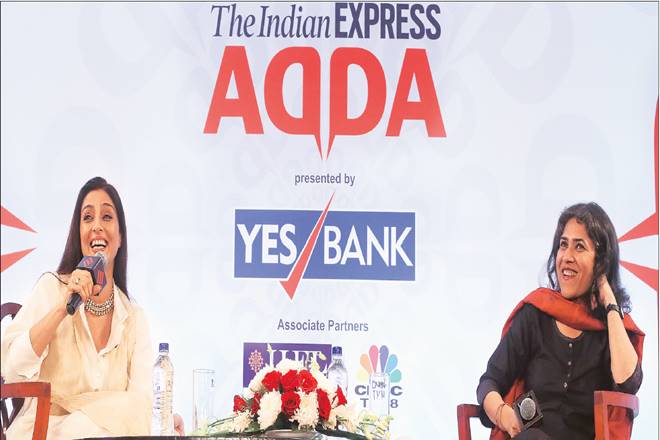On whether it’s easier to make people laugh or cry
Both are equally difficult or easy. I don’t think I set out with the intention of making them laugh, or making them cry. If I think about that then perhaps I’ll lose sight of what I’m doing. The director can have an intention of what he wants the audience to feel but with me it’s always been how well and how truly I can portray the character and how I can make it interesting; how I can do it my way and make it special. So yes, if people laugh and cry in that process, it’s great. I think it’s gratifying to hear that you’ve made people feel an emotion. That’s the ultimate reward for an artist.
On what drew her to acting
I’m still trying to figure out my relationship with acting and cinema. It was never my intention to be an actress. I was always extremely anxious about exams, so I would never go to watch a film when my exams were coming close. My sister was very interested in watching movies, she managed to watch movies and do well in school but I was very nervous because I was terrible at math, in spite of the fact that my grandfather was a mathematician. It was the talk of Hyderabad, ki mathematician ki nawasi aur math mein itni kharab. Movies happened by accident, Devsaab (Dev Anand) spotted me and chose me to play his daughter. My sister was spotted by Yash Chopra to play his lead. Later, I joined college and this time I was spotted by Shekhar Kapur, who was casting for Prem. After my first film, I had sworn never to act because I did not enjoy it. I thought it took me away from school and studies and Hyderabad, and anything that took me away from Hyderabad, I didn’t like. But of course, as destiny would have it, I agreed to do that one film and I got stuck.
On doing challenging roles
While I enjoyed being the quintessential heroine and wearing good clothes and running around in Switzerland, I also knew that I could do more and I wanted to do more. I was just waiting for that chance and when I got those chances, I just leapt at them. It was an honour for me to play those characters in Maachis, Hu Tu Tu and Astitva at a stage when I was too young to even understand them but I think the fact that these filmmakers were coming to me with those kind of characters made me feel good about myself.
On women actors getting more layered roles
I agree that leading ladies are getting to do layered characters. But they (women-centric films) have always been there — you had Mother India, Seeta aur Geeta, Chaalbaaz, Raat aur Din. Women have definitely played much more than eye-candies, but now the difference is that leading ladies are much more courageous to take on layered characters. Also, society is changing, we know that women do not have one-dimensional lives or personalities. So, in that way, it’s also fashionable to have layered characters for women, and also it’s a little boring to have them too nice.
On playing Shakespearean characters
I may have known Macbeth and Hamlet but I did not study them for my roles in either Maqbool or Haider. I approached them the way I approached any character. In playing Nimmi, who was Lady Macbeth in Maqbool, I was pushing myself into the unknown because I had never played such a dark character before. That was a time when we weren’t getting those kind of characters to play and also, there was fear and apprehension in playing them, but for me this character meant so much. For me, professionally and personally, Maqbool will always be a milestone. It was a beginning for me—and also for people—to start accepting such dark and layered women characters.
express features service

